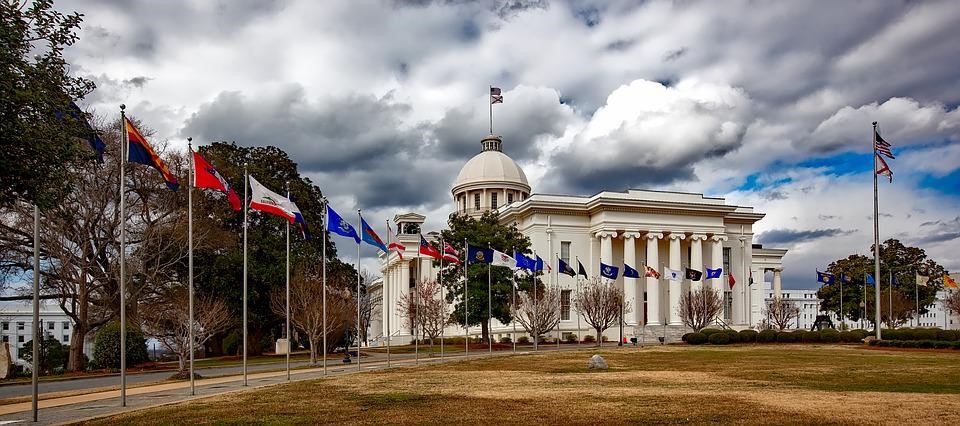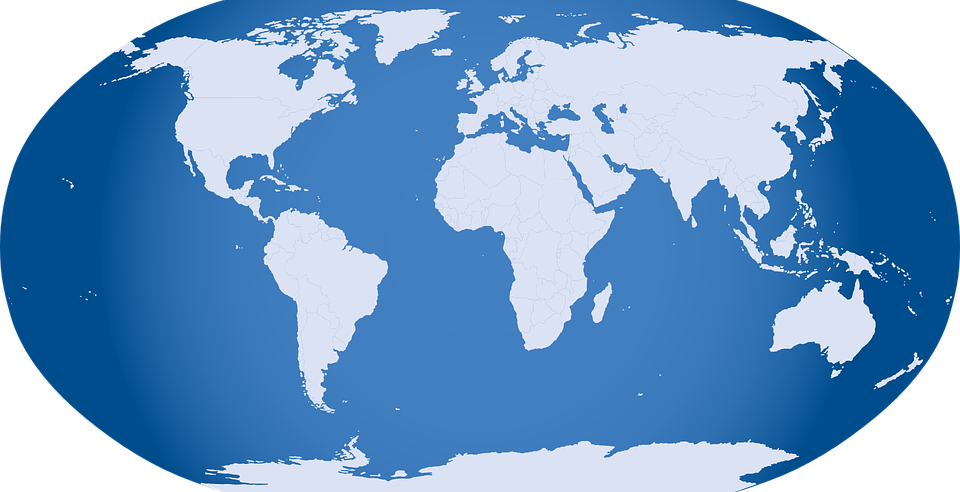January Littlejohn has a 13 year old daughter who attends Deerlake Middle School in Tallahassee, Florida. When her daughter expressed “gender confusion,” “she and her husband brought their daughter to a councilor to help her work through her confusion and began doing research to understand the subject…weeks later…her daughter happily told her she had spoken with (school) officials about changing her name, and they’d asked her which bathroom she wanted to use.”
When Littlejohn called the school to discuss the issue, “(s)he was told by the school guidance councilor…that they could not disclose what had been talked about…and that Littlejohn’s daughter needed to give consent by-law for her parents to be informed about or be present for future discussions. ‘My 13-year-old daughter who can’t vote, drink, or enter into any other legal contract without our permission or input,’ Littlejohn said…after several weeks of back-and-forths with the school district, the principal finally showed her a ‘transgender non conforming student support plan’ that the school had filled out with her daughter.” According to Littlejohn, “This was a six page document that she completed with the vice principal the guidance council, and a social worker I had never met.”
After the Littlejohn’s brought a lawsuit against the school, the case came to the attention of Florida Governor Ron DeSantis, who cited the experience of the Littlejohn family as the basis for the Parental Rights in Education Bill. “The bill, which some opponents have called ‘Don’t Say Gay’…reads, ‘Classroom instruction by school personnel or third parties on sexual orientation or gender identity may not occur in kindergarten through grade 3 or in a manner that is not age-appropriate or developmentally appropriate for students in accordance with state standards.’ Supporters of the legislation say it’s meant to allow parents to determine when and in what way to introduce LGBTQ topics to their children. It also gives parents an option to sue a school district if the policy is violated.”
For most people, it is alarming for a school to act in any regards towards a child without the knowledge or consent of a parent. However, at this point, we have also become used to the idea of “experts” knowing more about the raising of our children than the parents of those children. “There are many ‘quirky kids,’ as described by pediatricians Dr. Perry Klass and Dr. Eileen Costello… There are ‘all kinds of minds,’ as described by Dr. Mel Levine… (y)our child may fit the descriptions at specific times but not at others….”
In the Littlejohn case, the Deerlake Middle School only went so far as to “assist” their daughter with what name to use and what bathroom to use. But what if the Littlejohn’s 13 year old wished to go further in her transition to another sexual identity? What if she wished to physically change from a female to a male?
Gender Dysphoria and Transgenderism are difficult topics, but when it comes to the diagnosis and treatment of these “conditions” in adults, most people are in agreement – an adult can pretty much do anything they want, including undergoing gender reassignment surgery (Who pays for that surgery is a different source of dispute, and not the focus of this analysis). But what about cases involving children with gender dysphoria? What sort of treatment is recommended and made available for a minor with this “condition” by the “experts?”
Our review should begin with the legal definition of a child or minor. Under federal law, “(t)he term ‘child’ means an individual under the age of 13.” On the other hand, the definition of a “minor” is more fluid. In general, a minor is “(a)n infant or person who is under the age of legal competence,” and all 50 states usually define the threshold for “legal competence” as 18.
According to the International Center for Transgender Care, “(c)hildren who are transgender or gender non-conforming often benefit immensely from gender therapy. Talking with an expert can assist the patient to clarify and accept their gender identity, cope with stigma related to gender diversity, and better manage distress related to gender dysphoria. Additionally, because anxiety and depression are common in gender non-conforming youth, therapy…often focuses on treatment for these conditions.” Further, “(s)o called “conversion therapies”, in which gender non-conforming individuals are subject to treatments that attempt to change their gender identity, are both harmful and unethical.”
The National Health Service of the United Kingdom states that “(t)reatment for gender dysphoria aims to help people live the way they want to, in their preferred gender identity…(w)hat this means will vary from person to person, and is different for children, young people and adults…If your child is under 18 and may have gender dysphoria…(y)our child or teenager will be seen by a multidisciplinary team…including a; clinical psychologist; child psychotherapist; child and adolescent psychiatrist; family therapist; (and) social worker.” The treatment centers around counseling and psychotherapy, however, “a referral to a specialist hormone (endocrine) clinic for hormone blockers for children who meet strict criteria (at puberty)” can be made, however, the NHS warns that “(m)ost treatments offered at this stage are psychological rather than medical. This is because in many cases gender variant behaviour or feelings disappear as children reach puberty.”
The NHS also gives a comprehensive review of the effects of puberty blockers on minors;
“Little is known about the long-term side effects of hormone or puberty blockers in children with gender dysphoria. Although…this is a physically reversible treatment if stopped, it is not known what the psychological effects may be. It’s also not known whether hormone blockers affect the development of the teenage brain or children’s bones. Side effects may also include hot flushes, fatigue and mood alterations. From the age of 16, teenagers who’ve been on hormone blockers for at least 12 months may be given cross-sex hormones, also known as gender-affirming hormones. These hormones cause some irreversible changes, such as: breast development (caused by taking oestrogen) (and) breaking or deepening of the voice (caused by taking testosterone) Long-term cross-sex hormone treatment may cause temporary or even permanent infertility…(t)here is some uncertainty about the risks of long-term cross-sex hormone treatment.”
American medical providers also admit that use of puberty blockers have unknown future consequences. According to the Mayo Clinic, “Use of (puberty blockers) might also have long-term effects on…(f)uture fertility — depending on when pubertal blockers are started.” The Children’s Hospital of St Louis notes that “(t)he U.S. Food and Drug Administration has approved puberty blockers for children who start puberty at a young age,” however, “(w)hile puberty blockers are generally considered safe, they have some side effects< including “(l)ower bone density…(l)ess development of genital tissue,” and of course, “(o)ther possible long-term side effects that are not yet known.”
In general, according to Politifact, “(p)rofessional organizations such as the Endocrine Society recommend against puberty blockers for children who have not reached puberty, and recommend that patients be at least 16 years old before beginning hormone treatments for feminization or masculinization of the body. The last step in transitioning to another gender, gender reassignment surgery, is only available to those 18 and older in the United States. The onset of puberty is the baseline for medical intervention. Puberty typically occurs between ages 10 and 14 for girls and 12 and 16 for boys.”
Given the dangers inherent in the use of the puberty blocking drugs described above, at least 15 states have laws under consideration to restrict access to certain medical procedures by children identifying as transgender. But of these 15, only one has actually passed such protection of children into law.
In April of this year, Alabama Governor Kay Ivey signed the Vulnerable Child Compassion and Protection Act, “to prohibit the performance of a medical procedure or the prescription or issuance of medication, upon or to a minor child, that is intended to alter the minor child’s gender or delay puberty.” Section 2 provides the rationale for the act; “The long-term effects and safety of the administration of puberty-blocking medications and cross sex hormones to gender incongruent children have not been rigorously studied. Absent rigorous studies showing their long-term safety and positive benefits, their continued administration to children constitutes dangerous and uncontrolled human medical experimentation that may result in grave and irreversible consequences to their physical and mental health.”
Given the medical opinions cited above, the Alabama law would appear to be a reasonable measure, intended to protect children from the admittedly unknown side and long-term effects of puberty blockers. Reasonable minds should be able to agree that someone as young as 13 years old should not be prescribed a drug that could lower their bone density, or cause permanent infertility. But the minds of those employed by the Department of Justice are not so reasonable.
“The Justice Department (has) filed a complaint…challenging Alabama’s (law) which bans transgender treatments for children. The DOJ asserts that criminalizing the sexual transition of children is a violation of the Fourteenth Amendment on the grounds of equal protection…'(the Alabama law) discriminates against transgender youth by denying them access to certain forms of medically necessary care’ the Department of Justice wrote.”
DOJ’s complaint cites to their own experts; “The American Academy of Pediatrics agrees that gender-affirming care is safe, effective, and medically necessary treatment for the health and wellbeing of some children and adolescents suffering from gender dysphoria… (a)s transgender youth reach puberty, puberty delaying therapy may become medically necessary and appropriate for some minors according to the Endocrine Society’s clinical practice guidelines.”
The complaint does not deny the side effects and long term issues described by other medical groups – instead,” during puberty suppression, an adolescent’s physical development should be carefully monitored, preferably by a pediatric endocrinologist, so that any necessary interventions can occur.” How that pediatric endocrinologist will prevent permanent infertility, or other unknown side effects remains unclear.
Nonetheless, the heart of the complaint filed by the DOJ is an allegation that the Alabama law “discriminates both on the basis of sex and on the basis of transgender status, each in violation of the Equal Protection Clause (of the United States Constitution).” Further, Alabama’s Vulnerable Child Compassion and Protection Act “is not substantially related to achieving Alabama’s articulated important governmental interests…(and) is not rationally related to a legitimate government interest.”
To most reasonable minds, the protection of children from the unforeseen consequences of puberty blockers would appear to be a “legitimate government interest,” and a law designed to criminalize the prescription of such drugs “substantially related to achieve” that interest. But don’t count on Alabama’s law being upheld. Alabama falls under the 11th Circuit, and there the leading case is Glenn v. Brumby. Though the case involved an employee fired by his employer once the employee announced their intention to undergo gender transition surgery, the principal is the same:
“The Equal Protection Clause requires the State to treat all persons similarly situated alike or, conversely, to avoid all classifications that are “arbitrary or irrational” and those that reflect “a bare . . . desire to harm a politically unpopular group” (citation omitted)… The question here is whether discriminating against someone on the basis of his or her gender non-conformity constitutes sex-based discrimination under the Equal Protection Clause…we hold that it does… discrimination against a transgender individual because of her gender-nonconformity is sex discrimination, whether it’s described as being on the basis of sex or gender… a government agent violates the Equal Protection Clause’s prohibition of sex-based discrimination when he or she fires a transgender or transsexual employee because of his or her gender non-conformity.”
Whether or not this analysis will apply to a law meant to protect children from being rendered permanently infertile remains to be seen. But there is little cause for optimism.
Judge John Wilson (ret.) served on the bench in NYC.
Photo: Pixabay (Alabama State Capital)









